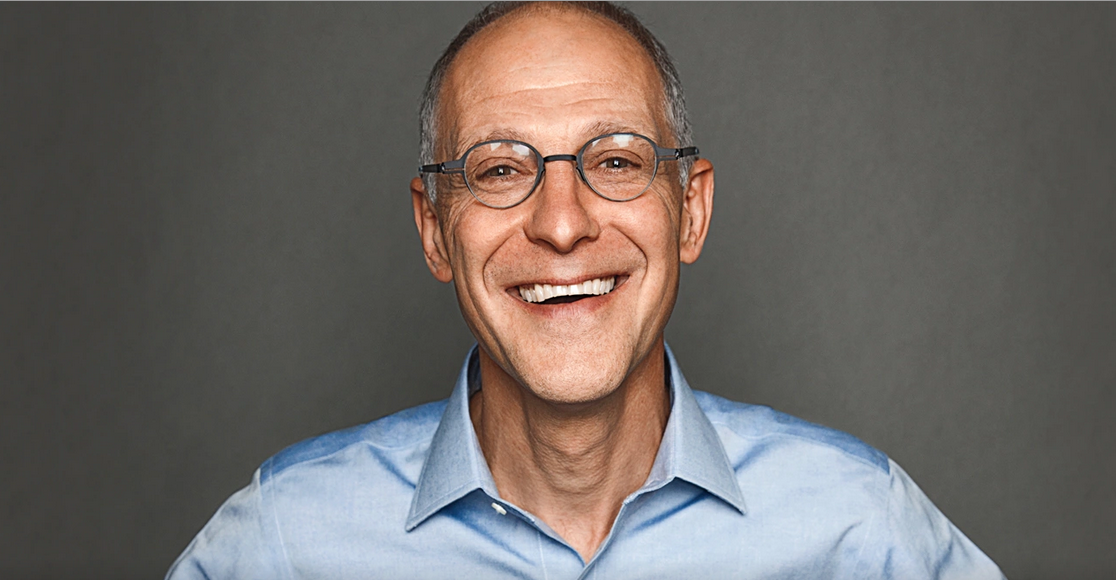 | ||||
With help from Renuka Rayasam and Myah Ward UP AND RUNNING — The Biden administration has its first Senate-confirmed Cabinet member, as Avril Haines was confirmed as director of national intelligence in an 84-10 vote tonight. BIDEN’S CASE FOR OPTIMISM — The America that newly inaugurated President Joseph R. Biden Jr. inherited today is pessimistic and profoundly divided. Democracy itself appeared to teeter this month. The Senate is plunging into an impeachment trial of former President Donald Trump. Large majorities of Americans — exhausted after four years of spectacle, a pandemic that has killed more than 400,000 people, a sputtering and unequal economy, racial inequality and police violence and a warming planet — believe the country is headed in the wrong direction. | ||||
Scott Goldsmith for POLITICO | ||||
But Biden has legitimate reason to be encouraged on his first day at his new job. Biden’s favorability rating has grown in several polls in recent weeks, up to around 60 percent. In today’s political environment, that’s a high number. He doesn’t have the kind of mandate Barack Obama entered office with in 2009. He isn’t as popular as his former boss was. He takes office with an ultra-slim Senate majority — with Vice President Kamala Harris serving as the tiebreaker. Obama had the luxury of a 60-seat supermajority. With such a narrow margin, Biden, 78, may be up against an even shorter shot clock to get things done. Call it the fierce urgency of getting up there in years. But in a country so split, it’s no small thing that majorities approve of Biden and his Cabinet picks. In an optimistic reading by Biden aides and allies, the early poll numbers point to a collective — and in their view still underappreciated — hunger among the public to move on from the Trump era. Biden aides see it as early evidence that Americans are at least willing to give him a chance. Part of their optimism stems from two emerging factors: Americans’ views of Biden are nowhere near as hardened as they were about Trump on his first day in office. They think the same could hold true for some members of Congress. Nobody is expecting Republican lawmakers in sizable numbers to have an “epiphany,” as Biden once forecast, but he and his aides still believe he can convince enough of them to come aboard on specific legislation to avoid unanimous GOP opposition to his agenda in the coming weeks. | ||||
Scott Goldsmith for POLITICO | ||||
Part of the idea is that Trump made political intransigence more toxic than it was during the Obama years — certainly among independents who want to hear a new tone from the White House. Democrats feel like they could rock Republicans back on their heels a bit by lining up behind populist proposals that segments of their own base want, like pandemic relief and a higher minimum wage. In the short term, getting some “transactional” accomplishments done could improve Biden’s standing. In the best-case scenario, with his ambitious plans to deliver the vaccine and hefty relief package, Biden might emerge from the many crises as the author of a great American comeback story. Yet the policy accomplishments may not help many Democrats win future elections. Voters’ brains aren’t wired to reward politicians for what their party has already done, and the party of the president typically loses seats in the midterms. Which doesn’t mean Democrats can’t hold the House in 2022, if they play their cards right. But notching a few quick wins could help Biden with another goal, should he choose to pursue it in 2024: Reelection. For more POLITICO photos from around Washington during the inauguration, check out our gallery. | ||||
Welcome to POLITICO Nightly. Catch Renu tomorrow morning when she will interview Houston mayor Sylvester Turner. Reach out at ccadelago@politico.com and rrayasam@politico.com or on Twitter at @ccadelago and @renurayasam. | ||||
JOIN THURSDAY TO HEAR FROM SELECT MAYORS ACROSS THE U.S.: On Thursday, Jan. 21, The Fifty: America's Mayors will virtually convene select mayors from across the U.S. for back-to-back interviews during inauguration week to discuss bold ideas and policy proposals for their cities to move forward post-COVID-19. The mayors will also discuss their cities' needs from state and federal government to recover from the economic and public health crises and how they'd like to work with President Biden as he begins in the White House. This virtual program will feature an executive conversation between POLITICO CEO Patrick Steel and Microsoft's President of U.S. Regulated Industries Toni Townes-Whitley. REGISTER HERE. | ||||
| ||||
KEY HEALTH SLOT UNFILLED — Public health experts and Biden’s own advisers have called for a strong chief at the FDA to help insulate the agency from public pressure and aid the new president in his goal of vaccinating 100 million people during his first days in office. But the debate on who should get the FDA’s top job has dragged on for months, with Biden’s team unable to settle on a nominee, health care reporters Sarah Owermohle and Adam Cancryn write. The president’s overriding focus on meeting his ambitious inoculation target, along with shoring up a pandemic-battered economy, has led him to focus on filling a series of high-profile health jobs — many at the White House — according to sources in the transition. The FDA job is among a second wave of positions that could take months to move through Senate confirmation. Adding to the complexity, Xavier Becerra, Biden’s pick to lead the Health and Human Services Department that oversees FDA, wants a say in the commissioner choice, said two people familiar with the discussion. | ||||
| ||||
I’LL SEE YOU IN COURT — In Washington, the Biden administration has the advantage of narrow Democratic majorities in both houses of Congress. But across the country, Republican governors and attorneys general are building their own plans to undercut the newly elected president’s sweeping agenda, writes Renuka Rayasam. Biden’s first flurry of executive orders will soon face their first resistance from Republican-led states poised to sue the administration. Even if they are ultimately unsuccessful, the lawsuits will stall Biden’s efforts to implement change in a hurry. Texas sued the Obama administration at least 48 times, with several challenges still winding their way through courts. California filed nine lawsuits against the Trump administration on Tuesday alone, Donald Trump’s final full day in office. “All of that case law still exists in the same courts that will be bound by previous decisions,” said Robert Henneke, general counsel at the Texas Public Policy Foundation, a conservative think tank that is leading a lawsuit to overturn Obamacare. He said that TPPF hasn’t made any concrete decisions about which of Biden’s orders they will challenge but added, “Everyone is getting ready.” Here’s a look at some potential areas of litigation: — The mask mandate : Biden narrowly tailored today’s mandate to include federal property, which Henneke concedes is constitutional. But he said that TPPF would oppose a mask mandate that applies to airlines, trains or other transit systems, something Biden has floated. Henneke argued that the federal government can’t restrict interstate travel in any way. — The return of DACA : Nine states have already sued over the program that grants legal protection to people who were brought to the country as young children. The Supreme Court ruled against the way that the Trump administration tried to end DACA. But a federal judge in Houston is hearing a separate case about the overall legality of the program. If he rules against it, Biden would have to pick up the appeal or try to push immigration reforms through Congress instead. — Climate change policies, including re-entry to the Paris agreement: West Virginia is set to play a key role in any effort by Biden to limit greenhouse gases. Henneke said one of the big areas they expect to challenge is how the Biden administration makes new climate rules. Courts forced the Trump administration to follow certain rule-making procedures to roll back environmental regulations. Republican-led states are going to challenge any effort by the Biden administration to reimplement Obama-era regulations without going through the same procedures. — Eviction moratorium extension: Multiple federal lawsuits, including one from TPPF, have been filed against the CDC’s eviction moratorium, which was set to expire Jan. 31 until Biden extended it through March 31 today. This is just from Biden’s Day 1 executive orders. Coming orders on health care, including abortion, are also expected to become major areas of litigation. HASTA LA VISTA, COVID — Making the rounds today, outside of inauguration events? Arnold Schwarzenegger’s Twitter video of his Covid shot at Dodger Stadium, complete with the Terminator line, “Come with me if you want to live.” | ||||
KEEP UP WITH CONGRESS IN 2021: Tensions remain high on Capitol Hill as we inaugurate a new president this week. How are lawmakers planning to move forward after a tumultuous few weeks? How will a new Senate majority impact the legislative agenda? With so much at stake, our new Huddle author Olivia Beavers brings you the most important news and critical insight from Capitol Hill with assists from POLITICO's deeply sourced Congress team. Subscribe to Huddle, the essential guide to understanding Congress. | ||||
| ||||
BACK IN THE BOOTH — Charlie Brotman got an email from the Biden Inaugural Committee last Thursday. They wanted the 93-year-old to announce the inaugural parade. So Brotman recorded it from his assisted-living home, where today he listened to his voice play on TV. “I’m really a local guy,” he said during an interview with Nightly’s Myah Ward. “I was born and raised in Washington, and to have someone like President Biden, say, ‘Yeah, let’s have him again. I like him.’ That’s fun for me. It’s like, ‘Hey, man, you’re my pal.’” Biden’s parade was Brotman’s 17th as announcer, for a 12th president. The committee said Brotman could announce the parade in person and socially distanced, but he didn’t want to risk catching Covid. So instead, nurses set up equipment in his room, and Brotman recorded 23 pages of script on Sunday. Brotman’s first inaugural parade was for President Harry Truman in 1949, when he and other students from the National Academy of Broadcasting announced the parade. But his first solo gig came after he made an impression on President Dwight Eisenhower. Brotman was an announcer for the Washington Senators, and he welcomed Eisenhower when Ike threw the season-opening pitch at Griffith Stadium. “Next thing I know, I get a call from the White House,” Brotman said. They asked him to be the president’s announcer on Jan. 20, 1957. His first thought? “Gulp,” Brotman said, chuckling. Brotman has photos with presidents and a signed baseball from Richard Nixon. It says, “Best wishes to Charlie. Dick Nixon.” He was asked to be the announcer by every president since Eisenhower — until the Trump Inaugural Committee replaced him. “There was no doubt I was going to be the announcer,” he said, recounting the call with Trump’s committee. “They’re saying, ‘Charlie, we’ve heard all about you. And I know you’re a legend in this, and you’ve done this 1,000 times. And I’m saying, ‘Yes, yes. Ask me. C’mon!’ And they said, ‘We have somebody who’s going to be the announcer. We’d like for you to sit with President Trump.’” Brotman didn’t take the seat. Instead, he attended the Women’s March on Washington, where he announced the lineup of speakers. DISTRICT DESERTED — Streets were deserted. Stores boarded up. Troops lined the perimeter of the Capitol. This was the backdrop of Biden’s inauguration — and as Playbook’s Tara Palmeri reports in the latest POLITICO Dispatch, it could be the backdrop of a new Washington for weeks to come. | ||||
| ||||
Nightly asks you: In an executive order issued Monday, Trump listed 244 people he’d like to see honored with statues in a National Garden of American Heroes, including Muhammad Ali and Amelia Earhart. It is unlikely to get built. But if the garden were to come to fruition, which non-political figure would you like to see in it, and why? Send us your answer via our form, and we’ll include select responses in Friday’s edition. | ||||
| ||||
EUROPE’S VISION OF BIDEN — As the U.S. celebrated Inauguration Day, heads of state worldwide sent messages to Biden throughout the day. POLITICO Europe followed the response from across the continent. Some highlights: — Germany: Chancellor Angela Merkel offered her “warmest” congratulations to Biden and Harris through her official spokesman on Twitter. Merkel said she looked “forward to a new chapter of German-American friendship and cooperation.” — U.K.: Prime Minister Boris Johnson declined an opportunity to brand Biden as “woke.” He was asked after Shadow Foreign Secretary Lisa Nandy described Biden as a “woke guy” in an interview with the Guardian. “There’s nothing wrong with being ‘woke,’” Johnson said in answer to the question, but added, “I would put myself in the category of people who believe that it’s important to stick up for your history, your traditions and your values and things you believe in.” — France: President Emmanuel Macron sent to Biden and Harris his “best wishes on this most significant day for the American people! We are together. We will be stronger to face the challenges of our time. Stronger to build our future. Stronger to protect our planet. Welcome back to the Paris Agreement!” — Ireland: Biden’s closest relatives in Ireland, members of the Blewitt clan , were invited to attend the inauguration but couldn’t go because of Covid-19 pandemic restrictions on travel. Instead, the County Mayo town of Ballina on Ireland’s Atlantic coast was bedecked today with red, white and blue bunting. Households displayed signs on their living room windows congratulating Biden for his victory and watched live coverage of the ceremonies on Irish TV. Others are gathering beneath Ballina’s art deco mural of Biden and waving American flags. “We’re very proud of Joe Biden,” said Joe Blewitt, a Ballina plumber and one of several Biden cousins who live in the area. Biden visited the town in 2016 as vice president and 2017 to trace his five-eighths Irish roots. TRUMP’S TRADE LEGACY — Biden came into office today with trade deficits at rates not seen in more than a decade. The U.S. trade deficit with all countries globally has increased nearly $30 billion since Trump took office, with China accounting for a large portion of the total. | ||||
| ||||
| ||||
| ||||
| ||||
LET’S IGNORE WHAT KAMALA HARRIS WEARS — It’s already started, Renu writes. Just hours after Kamala Harris was sworn in as the first Black, Indian American and female vice president, her fashion choices are being widely dissected. There are galleries of her signature style that I am secretly guilty of clicking through. We are already parsing her fashion diplomacy, and publishing takes about her impact on America’s designers. So here’s a plea that will be widely ignored: Let’s leave the fashion choices of Vice President Harris out of the headlines. Unlike first ladies who are relegated to a hazy role as accessory, Harris is now (arguably) the most powerful woman in Washington. She will no doubt face intense scrutiny just for the mere fact of being a woman of color. Hasn’t she earned the right for the focus to remain on her actions and words rather than what she wears? Just today, she escorted former Vice President Mike Pence and his wife as they departed the Capitol, stepping into a tradition normally carried out by presidents. Later she swore in Georgia’s newest Democratic senators and her replacement in her new role as president of the Senate. But neither story is likely to be as widely shared as the flap over her Vogue cover. It doesn’t help that Harris is young, beautiful and impeccably dressed. There are already blogs devoted to her style, including one that mimics royal fashion blogs. But vice presidents are not princesses or duchesses. It would set an important precedent now to ignore the fashion choices of Harris. We will see more women in positions of power in the future, and not all of them will be so fashion savvy. I’m not totally innocent. I once profiled Merkel’s fashion designer. But by then Merkel had been chancellor of Germany for seven years. There was no fear of her clothing choices overshadowing her actions. She wasn’t expected to be fashion savvy as well as competent. But the U.S. has long struggled to elect women to positions of power, and has held them to a far different standard than male politicians are held to. Men can be powerful and be mocked for misguided sartorial choices — see Bernie’s mittens or Al Gore’s earth tones or Barack Obama’s tan suit. But those were largely one-offs. There are no fashion blogs or multiple columns devoted to the clothing of Bernie Sanders, at least not yet. It’s the expectation that men politicians dress in largely uninteresting suits. Women don’t usually have that luxury. Coverage of Geraldine Ferraro ’s clothing choices, by contrast, was far more intense and earned her comparisons to first ladies, which she was not. Sure, President Obama was glamorous, but he didn’t have to be. Let’s allow women politicians the same freedom. Did someone forward this email to you? Sign up here. | ||||
Follow us on Twitter
| ||||
FOLLOW US | ||||
POLITICO, LLC 1000 Wilson Blvd. Arlington, VA, 22209, USA |








 record-breaking 4,000 Americans are now dying each day from Covid-19, while the federal government fumbles vaccine production and distribution, testing and tracing. In the midst of the worst pandemic in 100 years, more than 90 million Americans are uninsured or underinsured and can’t afford to go to a doctor when they get sick. The isolation and anxiety caused by the pandemic has resulted in a huge increase in mental illness.
record-breaking 4,000 Americans are now dying each day from Covid-19, while the federal government fumbles vaccine production and distribution, testing and tracing. In the midst of the worst pandemic in 100 years, more than 90 million Americans are uninsured or underinsured and can’t afford to go to a doctor when they get sick. The isolation and anxiety caused by the pandemic has resulted in a huge increase in mental illness.





